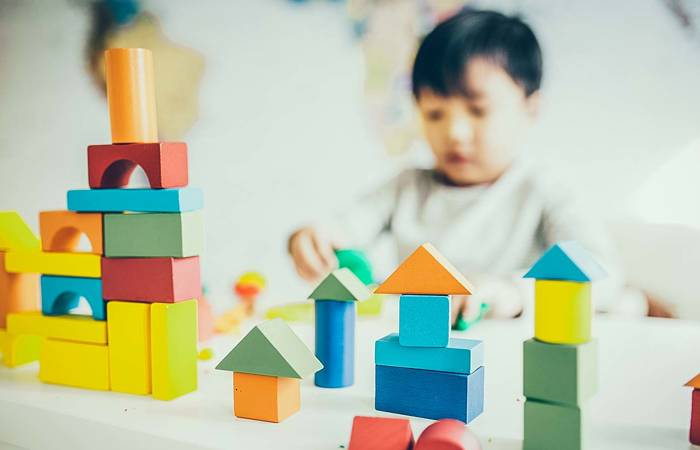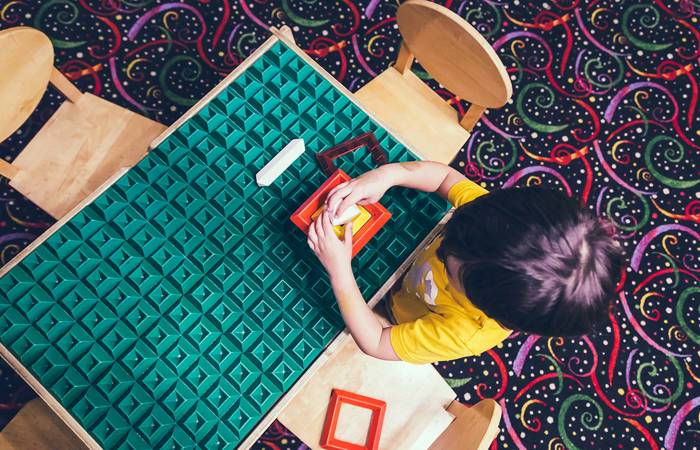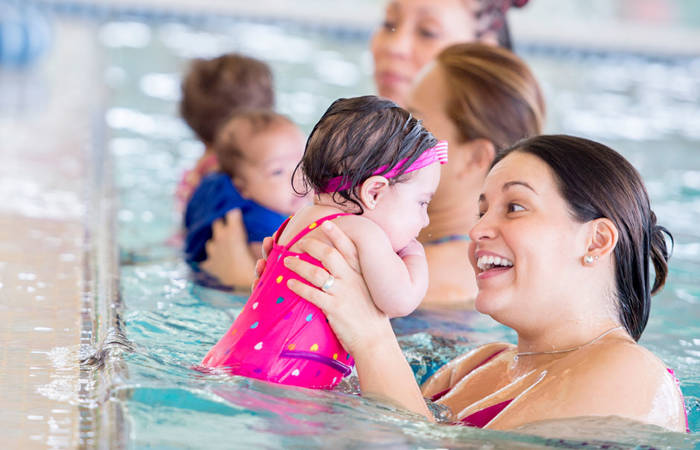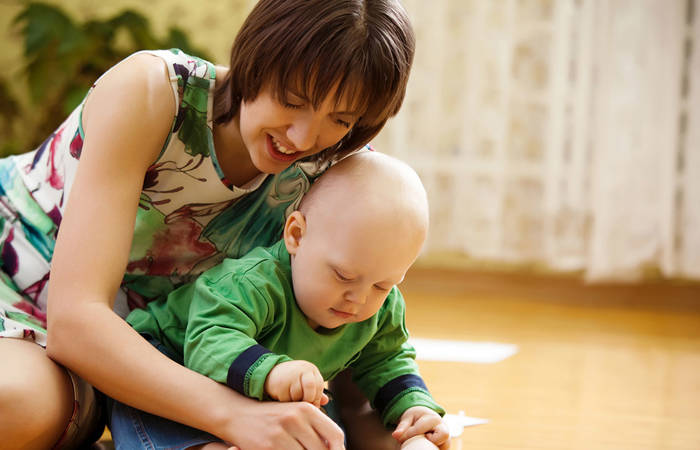Like what you see?
Sign up to receive more free parenting advice.
Thank you for subscribing to our newsletter!
Child Development
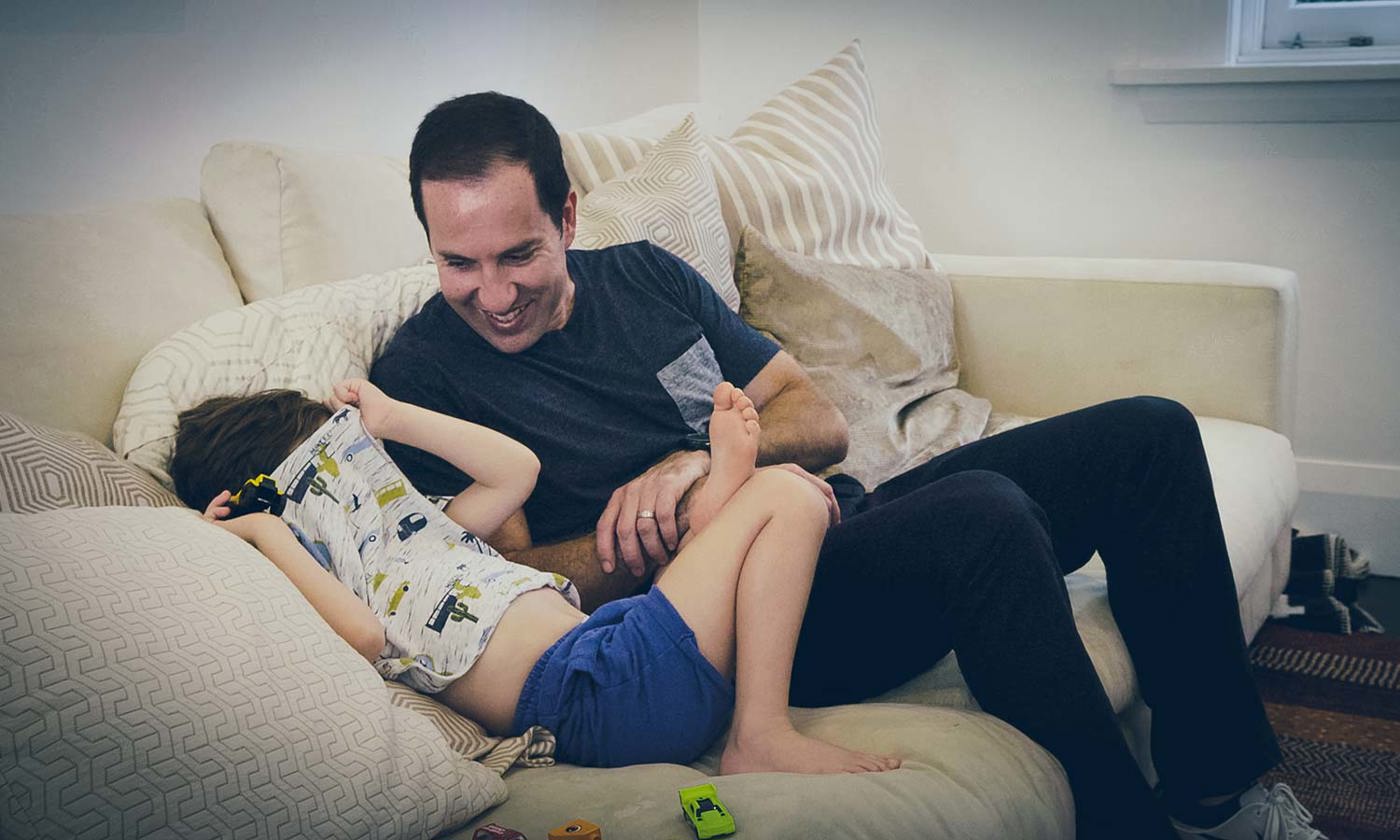
Max is non-verbal and was diagnosed on the autism spectrum at age two. His father, pharmacist Monir Elhage is one of 12 Australian dads to share his personal parenting story in a film about autism and fatherhood.
The 36-minute short film, produced by leading autism organisation Autism Awareness Australia, recounts the stories of each of the Aussie fathers talking about their success, struggles and what it means to be a Dad to a child on the spectrum.
Now aged six, Max attends a mainstream kindergarten but is primarily in a support class. Monir and his wife Lee take Max to up to 100 hours a month of therapy including an Applied Behaviour Analysis Therapy integrated class five days a week.
Monir admits to being completely taken by surprise by Max’s original diagnosis. He says Max met his childhood milestones until about 15 months when he was a little slow to walk, before his verbal development fell behind.
“He was walking at this stage but he was a lot quieter. He was less alert and you could set off fireworks behind his back and he wouldn’t turn around,” Monir says.
‘The first thing we do is test his hearing. He used to have a favourite show Bubble Guppies. You could change the channel and he would come running to change it back. So he could hear. We did three hearing tests. He was fine.
“The little dude was absorbing everything going into his head he just couldn’t process that information.”
By age two, the word autism had not been raised, but the family’s GP referred Max to a developmental paediatrician.
“At this point I’m thinking nothing. Each child blossoms at their own rate. That’s the stories they tell you. The word autism was never mentioned,” Monir says.
“Of course we know about autism, but the kid was smiling, he was happy. He didn’t have the more visual presentation of someone who you think is on the spectrum.
“If someone put him in a crowd he looked like everyone else. He was well behaved, he followed instructions. It was just the lack of speech.”
Monir says the developmental paediatrician highlighted Max’s “stimming”, short for self-stimulatory behaviour - a repetitive or unusual body movement or noise.
“My son would hold his hand out in front of his face and move his fingers to reduce his own anxiety. Now he uses a toy which he rubs against his face,” Monir says.
“The best part of the diagnosis and getting it, is it tells you what to do next. The worst part of going to the doctor is having them tell you ‘I don’t know what it is’. It doesn’t matter what it is, it gave us a pathway of what to do next.”
Don’t deny it. The best thing you can do is get your diagnosis and if it is spectrum, get treatment, join the groups, get the help and stay in touch with your friends. Try not to shut everyone out.Monir Elhage
Stay up to date with the latest news and articles from First Five Years
Thank you for subscribing to our newsletter!
Monir says his family’s situation is different to many others with children on the autism spectrum.
“Max is non-verbal and some words appear and disappear. Because of this Max flies so far under the radar,” he says.
“People say ‘what a good boy’ because he’s so quiet. He’s quiet because he can’t talk. It’s very sad.
“If however, you have a child who tantrums, whose reactions are severe such as very loud crying or moaning and they can’t control reactions if a grinder goes off in a café, it’s very hard. You are talking about a child losing their mind and it’s hard to control.
“People do get paranoid about ‘what is everyone thinking about my child and thinking about us’. I do tend to find our community lacks compassion.”
Monir urges families with any concerns about their child’s development to seek advice and avoid denial.
“Denial is the worst thing. Labelling the child as autistic is for life and that is everyone’s hesitation because it’s a permanent thing,” he says.
“It’s the start of every conversation everywhere you go - every doctor, every school - and then you get on with the business. This is with Max for life. That’s where everyone’s hesitation is, but denial sets you back. It just means you start the treatment later.
“Seek your local GP. They will be able to do a general assessment immediately and know if you should be concerned. The GP will guide you on whether you need a referral or not.
“Don’t deny it. The best thing you can do is get your diagnosis and if it is spectrum, get treatment, join the groups, get the help and stay in touch with your friends. Try not to shut everyone out.”
Yes, life will be different for your family, but that doesn't mean it can't be wonderful. It takes time and a lot of hard work but in the long run autism is only one part of your family's story.Elizabeth Sarian
Executive Manager of Autism Awareness Australia Elizabeth Sarian says dads were often the “neglected parent” when it comes to support services and the film was made to provide advice and support for dads who are new to autism.
“When children are first diagnosed it's often very overwhelming and confusing. We felt it's important to have a resource that's specifically for them, and shine a light on some of the amazing autism dads we know,” she says.
“For the most part, dads new to autism are reluctant to talk about or share their experiences, especially in the early days.
“They expressed they felt uncertain, confused and anxious and tended to keep their feelings private.
“The dads we interviewed for the film were more experienced and familiar with autism and parenting.
“We were pleasantly surprised by how generous they were with sharing their stories. We really weren't expecting it but they all felt so passionate about supporting other dads that it was inspiring!
“We ended up with so much valuable content that aside from the 36-minute documentary, we've also produced 12 segments of bonus footage that take a closer look at some of the topics covered in the film.”
Elizabeth says that while the fathers come from varied backgrounds with very different parenting experiences, they did share one common message - that there is hope.
“What might feel like the most difficult or devastating thing your family has experienced, often turns out to be the thing that gives you the greatest strength.
“Yes, life will be different for your family, but that doesn't mean it can't be wonderful. It takes time and a lot of hard work but in the long run autism is only one part of your family's story.”
Autism Awareness Australia’s aim is to support all Australians on the autism spectrum and the families who love them. It assists them through a range of educational programs, awareness campaigns, media advocacy, free information and resources.
Elizabeth says parents can be overwhelmed at the diagnosis, but support is available.
“We'd say you are about to join the best 'parent group' you never wanted to be a part of.
“The autism community is an incredibly fierce tribe of parents and carers, with experience, knowledge and compassion for what your family is about to go through. Lean in to them, build friendships, and you will have them for life.
“As the saying goes, ‘if you've met one person with autism, you've met one person with autism’,” Elizabeth says.
“They are all so different in their challenges and their strengths.
“Get to know them for who they are, not who you think they are. Help them build their skills so they can lead as happy and independent lives’ as possible.
“Makes sure you include them, and we mean really include them. Some minor accommodations and flexibility can go a long way.
“Most importantly to those who are outside of the immediate family... Your well-meaning opinions, parenting advice and judgement aren't helpful but your support, understanding and compassion are.”
‘DAD’ is available online at www.dadfilm.com.au.

